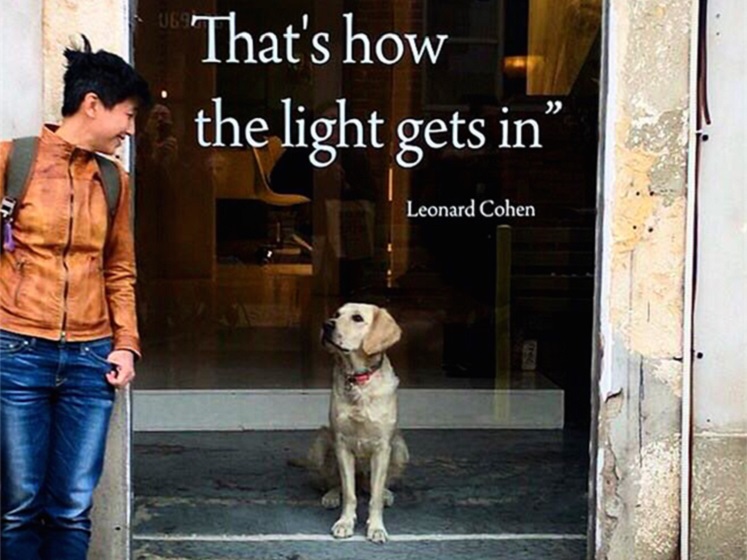 Jac sm Kee
Jac sm Kee
Jac sm Kee is a feminist, activist and writer with a focus on internet governance, sexuality, women’s rights and feminist movement building in a digital age. She heads the Women's Rights Programme of the Association for Progressive Communications (APC), and is the co-founder of Take Back the Tech!, a collaborative global campaign to end online gender-based violence. She is currently serving as a board member for CREA, co-director of Centre for Independent Journalism Malaysia and founding member of the Malaysia Design Archive.
You currently lead the APC Women’s Rights Programme. Can you tell us about this initiative?
We are a small but amazing team of feminist activists based in Mexico, South Africa, Czech Republic, Bosnia Herzegovina, Argentina, India, the US and Malaysia who work in partnership with networks of activists in women's rights, sexuality, queer rights and internet rights movements in different parts of the world.
Our work lies at the intersection of feminism and technology, engaging in research, campaigning and advocacy on issues around access to the internet, online gender-based violence, internet governance and sexuality and the internet. We also engage in capacity building on feminist digital security, storytelling as a strategy for transformation and healing, and the feminist politics and practice of technology. One of our key areas of work at the moment is the collaboratively developed Feminist Principles of the Internet: a set of evolving principles that act as frameworks to unpack and analyse power structures and relations on emerging technology-related issues.
You were also one of the founders of Take Back the Tech! – a global campaign launched in 2006 to combat digital gender violence. What are its biggest achievements to date?
Since its inception, the campaign has been taken up, adapted and owned by individuals, groups, networks and organisations all around the world and its collective ownership has been a key factor in its adaptability, sustainability and responsiveness.
One of our most successful actions began towards the end of 2014. We issued a report card to Facebook, YouTube and Twitter, assessing their response to online gender-based violence taking place on their platforms, and all of them failed. We then launched a campaign to increase pressure on these companies – that at the time were extremely hesitant to acknowledge they had any role to play – to take the issue more seriously. Since then, our partners and APC have engaged in different discussions with social media platforms to strengthen their response towards online gender-based violence, and the landscape is very different now.
How has the digital age changed feminism activism?
This is a hard question to respond to, and we recently convened Making a Feminist Internet: Movement building in a digital age to reflect on the issue.
The internet has not only transformed how we organise, but also who the actors are, the form and dynamics of organising, sites of activism, questions around leadership, accountability, impact, sustainability, solidarity, and more. Social media has become a space for amplifying the feminist discourse and the disruption of normative power, as well as a place for activism that engages with new decentralised and networked actors. This has an impact in terms of how we understand social movements, who are part of them, what constitutes action, and how we think about transformation or the flow between what takes place online and the existing relationships of solidarity and trust.
The #MeToo and #TimesUp initiatives have put a spotlight on sexual harassment and abuse. In your opinion, can social media movements be a catalyst for real social change?
Without question. It's a chaotic but fertile site of engagement and activism at different levels, with a wealth of possibilities and challenges. This is the reason why feminist discourse, or any expression that challenges hegemonic power structures, is almost assuredly met with backlash and attacks that aim to diminish and silence those voices.
Social media is simultaneously hyperlocal and global, and this inflects the conceptualisation of subjectivities as well as sites for transformation. #MeToo is a great example of this, in terms of catalysing resonance through a global experience of harassment that is specific and particular to different contexts and bodies, as well as institutions. #MeToo conversations about academia in India for example, or in the digital rights movement, are very different in texture, actors, issues and impact from that taking place in Hollywood. But all are leveraging on a global moment of recognition and visibility and creating a possibility for a loud demand for institutional and collective accountability.
What are your fondest memories of your time at the School?
I really enjoyed being able to hang out with course mates at different coffee places near the Gender Institute, having the luxury of talking at length and debating over readings, theories and feminist thinkers with people from all over the world who came into the same space of thinking and questioning from very different experiences.
It was such a wonderful place to be, and just what I needed at that time in my life – a space for pause and deep reflection before getting ready to re-enter the fray.
Is there anything you learned at LSE that stands out?
LSE provided me with a solid grounding on feminist epistemology and queer theory. I really enjoyed being able to delve into the writings of thinkers such as Sara Ahmed, Trinh T. Minh-ha, Donna Haraway and Elaine Scarry. They provided lines of enquiry I have continued to evolve and bring forward in the work I do now. Looking back, I think Clare Hemming's classes were the ones I enjoyed most, because she encouraged us to always intersect between different bodies of knowledge production.
Read more
LSE alumni profiles
Department of Gender Studies